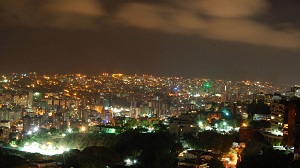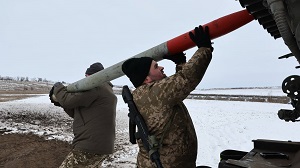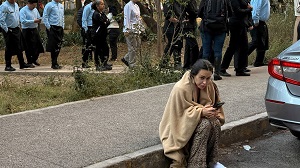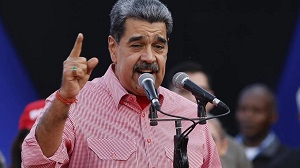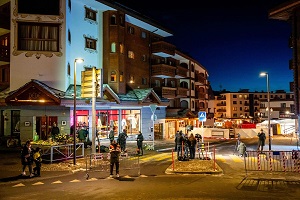What one may learn from peacemaker Izzeldin Abuelaish - By Salim Hawatmeh, Jordan News

Izzeldin Abuelaish was born on February 3, 1955, in the Gaza Strip, Palestine. Growing up in the Jabalia Refugee Camp while sharing a 3x3m room with his mother, father, and siblings, young Izzeldin did not have much other than big dreams and bags of potential, and as it turned out, that was all he needed. His hard work earned him a place in medical school; he eventually obtained several medical degrees and became the first Palestinian doctor to be appointed at an Israeli hospital
That alone is no mean feat, but Abuelaish did not stop there; he went on to dedicate his life to enabling and encouraging peace, involving himself in conflicts all over the world, using his medical expertise as well as his peace-making abilities, which eventually led to his nomination for the Nobel Peace Prize five different times.
Abuelaish was praised by leaders worldwide, including Barack Obama, who named him as an example of “strength and reconciliation”. The Belgian Parliament called him the “Martin Luther King Jr of the Middle East”.
Abuelaish’s autobiography, a best seller, was widely acclaimed by critics. His charitable organization Daughters for Life, which works to promote the education of women in the Middle East is a charity registered in the US and Europe. He is now an associate professor at the University of Toronto.
These accomplishments are impressive; they also reinforce Abuelaish’s authority on issues like peace and rejection of hate, an emotion all too known to the Palestinian doctor.
In the 2009 Gaza War, two Israeli tank shells hit the apartment complex where the Abuelaish family lived, killing three of Izzeldin’s daughters as well as his niece. His appeal to the Israeli supreme court for an apology was rejected, but Izzeldin decided that he could not let hate, anger and sadness consume him; instead, he used his pain as motivation to make the world a better place and prevent horrific acts like that from happening to anyone else.
Recently, Abuelaish imparted to Jordan News his mission, philosophy, and view of our world, expressing hope that his promotion of good can inspire others to follow the same path.
Rejecting impossibility and taking responsibility
Even a mild understanding of Abuelaish’s story would be enough to asses the improbability of his success, so how has he achieved all that he has?
Well, he never acknowledged that improbability. Instead, he remained confident in his mission, convinced that “the first step to failure is to lose confidence”. And even if one fails, Abuelaish made clear that “failure is the incentive, it is the trigger, it is the motive behind our success”.
For the most part, this precept guided Abuelaish, convinced him that the concept of impossibility does not exist. The word itself “is not in my dictionary” he said with unbreakable confidence.
Another key aspect of Abuelaish’s philosophy regarding failure or goal attainment is assuming responsibility: “The biggest challenge to human beings is individual responsibility, the easiest thing is to blame and avoid responsibility.”
According to Abuelaish, shifting blame is not only unproductive, it is also harmful, and “never leads to personal growth”, for, as he puts it, “life has been and will always be the result of our efforts, of our own actions”.
Abuelaish’s journey exemplifies his philosophy in more ways than one. From growing up in a refugee camp to being nominated for a Nobel Prize is itself a great achievement. Maybe his view of a refugee had something to do with it.
“This refugee, is not just someone displaced or exiled. This human being has a name, has a face, has hopes, has dreams, has plans, has parents; one day he has a country, he has a home, and the next he is homeless, deprived of his humanity, exposed to intimidation and humiliation.”
With his view of what a refugee is, Abuelaish humanizes the issue while others politicize it, and this also sets a more realistic path for someone in a refugee camp to succeed, a normal human being, as he points out.
True, the hardship of being a refugee in a camp could hinder the chances of someone succeeding, especially since living in conditions such as these could easily make one feel angry and, more importantly, hate those responsible for his situation.
Anger, he says, may be positive or negative. It is sometimes necessary, and should even be encouraged in certain situations, “like being angry when we see injustice and we take action because of it”. It should be positive anger that motivates one, he stresses, as negative anger is unproductive and harmful.
Abuelaish views hatred as “a poison”. “Most studies speak about hatred as a feeling, as an emotion, but I realized as a medical doctor that hatred is not only a feeling”; it is “destructive, contagious, a disease”.
Moreover, he says, hatred is contagious, ultimately creating an endless cycle of destruction and conflict.
For him, “the antidote to hatred is resilience, steadfastness, kindness to yourself, and self-forgiveness. Do not think of the perpetrator”. Moreover, “if you were a victim of some act, action from others, do not accept to be a victim more than once”.
Doing this, he says, will transform hatred into positive energy, enabling a person to “challenge the perpetrator, to not give up and not forget”.
Aware that everybody handles emotions differently, that the resilience and steadfastness of one person may not be as potent as of another, he believes that the best thing is to “prevent exposure to hatred”. Providing people with peace, justice, equality, and freedom is the best way to avoid that exposure to hatred, he believes.
The importance of educating women
After the death of his three daughters and niece, Abuelaish founded the charitable organization “Daughters for Life”, for the purpose of aiding and guiding women through education systems across the Middle East, while also keeping the image of his daughters alive, for him and for the many he has helped.
“Women do not need to be empowered, they already have the power, they only need the means, and education is a means to an end, the means to practice their role as equal to men,” says Abuelaish.
“The best way to measure the development of a country is to examine women participation in decision making,” he stresses.
Abuelaish stands as a shining beacon of inspiration and hope to all. He was able to transcend his negative emotions and dedicate himself to the promotion of good.
“When I go to bed, I will have done something good. If I did not do something good, I did not do any harm; that is what I want others to take,” he says by way of advice.
